The Bipolar Express
Manic Depression and the Movies
David Coleman
ROWMAN & LITTLEFIELD
Lanham Boulder New York Toronto Plymouth, UK
Published by Rowman & Littlefield
4501 Forbes Boulevard, Suite 200, Lanham, Maryland 20706
www.rowman.com
10 Thornbury Road, Plymouth PL6 7PP, United Kingdom
Copyright 2014 by Rowman & Littlefield
All rights reserved. No part of this book may be reproduced in any form or by any electronic or mechanical means, including information storage and retrieval systems, without written permission from the publisher, except by a reviewer who may quote passages in a review.
British Library Cataloguing in Publication Information Available
Library of Congress Cataloging-in-Publication Data
Coleman, David, 1964
The bipolar express : manic depression and the movies / David Coleman.
p. cm.
Includes bibliographical references and index.
ISBN 978-0-8108-9193-7 (hardback : alk. paper) ISBN 978-0-8108-9194-4 (ebook) 1. Manic-depressive illness in motion pictures. I. Title.
PN1995.9.M275C65 2014
791.43'6561dc23
2014010265
 TM The paper used in this publication meets the minimum requirements of American National Standard for Information Sciences Permanence of Paper for Printed Library Materials, ANSI/NISO Z39.48-1992.
TM The paper used in this publication meets the minimum requirements of American National Standard for Information Sciences Permanence of Paper for Printed Library Materials, ANSI/NISO Z39.48-1992.
Printed in the United States of America
Acknowledgments
As author, I am deeply in debt to and owe gratitude to many. For their tireless research and worthy tomes of exhaustive biographical detail, historical film writers such as Patrick McGilligan, Donald Spoto, Peter Biskind, and others far too numerous to list deserve enormous thanks. You will nonetheless find their names and works of scholarship appearing profusely in the endnotes, and I urge the reader to seek the original texts and consult them for their merits independently of this book. Their work is not oriented specifically toward this books thesis, but they chronicle their subjects with endless biographical detail that offers invaluable insights. Likewise, the works of bipolar medical research psychiatry by such writers as Kay Redfield Jamison and Anthony Storr are resources without which this book could not exist save in the most rudimentary form. To the numerous Internet organizations and libraries that provided access and materials, I also wish to sincerely express my thanks. For his endless patience and encouragement, my editor, Stephen Ryan, also gets a well-deserved round of applause.
The author also wishes to acknowledge the many millions of bipolar and unipolar depressive sufferers who have endured countless heartaches and private hells and who are not profiled in any significant way in this effort. Not every bipolar has filmic therapy to combat their illness. Not every depressive can achieve creative victory over a chronic episode. But many have found their own forms of creative therapy, despite lacking the resources and opportunities of their well-funded brethren in Hollywood and other film-production centers, and in so doing, have prevailed and endured. I also wish to thank their support groups and loved ones. Every bipolar who is in remission knows that without these angels there would be no wind beneath our wings or gentle words to bring us back to earth when necessary.
No writer is stand-alone in his or her efforts on any personal level in terms of professional work. The author acknowledges his profound gratitude to those who have taken the time to support this effort, if not the author himself, with both scholarly and personal contributions. The subject matter, my own vagaries of temperament, and the various complicated turns one encounters in life all threatened at times to derail this prolonged effort. Rather than list a series of names, I would like their owners to privately bask in their deserved personal spotlights as they read this, as I am confident you will recognize yourselves when you do so. The program may not list your name, but the performance could not have happened without your generosity and loyalty. There are, however, some that I would be remiss if I did not name. My lovely family rides the wild roller coaster of my disorder by my side with a grace and forgiveness I strive to better understand but freely admit is presently beyond my ability to comprehend. Their love and patience gives me hope that I will one day see their light from the inside, not merely bask in the one they protectively cast upon me. So for Ryan, Lindsay, and Andy, my eternal gratitude for, first, making life so richly possible, and second, helping to bring this book to fruition. And to my wife, Laura, who has been my source of unending faith and redemption through decades of personal travails owing to my illness, I dedicate this volume. In some small way, I hope it helps repay my overdrafted karmic balance with the same healing power with which you always restore my equilibrium.
Introduction
Some of the greatest film directors and actors in cinema history were and are bipolar or unipolar depressives. A brief litany of their names alone conjures renown and prestige in their respective art forms. By no means complete, a small sampling of filmmaking talent with severe mood disorders might include: James Dean, Nicholas Ray, Charlie Chaplin, Peter Sellers, Francis Ford Coppola, Vivien Leigh, Martin Scorsese, Klaus Kinski, Jim Carrey, Peter Bogdanovich, Ned Beatty, Carrie Fisher, Rainer Werner Fassbinder, Marilyn Monroe, Alfred Hitchcock, Robin Williams, Vincente Minnelli, Margot Kidder, Harrison Ford, Tim Burton, Robert Downey Jr., Busby Berkeley, Woody Allen, Catherine Zeta-Jones, Sam Peckinpah, Russell Brand, Gene Tierney, Richard Dreyfuss, Mel Gibson, Greta Garbo, Frederico Fellini, Lars Von Trier, Linda Hamilton, Orson Welles, Mariette Hartley, Spaulding Gray, Frances Farmer, Judy Garland, Bob Fosse, and Burgess Meredith. This list is only suggestive, not complete, and in no particular order of relevance save that the listed were or are all mood-disordered creators.
Such a list does not fully capture the impact these visionary performers and directors have had on movies and audiences in their respective eras. To gain a better perspective, lets stage an imaginary film festival of the greatest moments in cinema history. The only criteria for selection to our pretend screening series is that the works were not created by mood-disordered individuals in the capacity of writer, director, actor, or other key creative talent. As virtual programmer, our task is simple: if mood-disordered artists were involved, we simply do not show their works. Despite the relative ease implied, its actually quite a daunting task to sort through, but lets try for arguments sake. For what is revealed by absence is every bit as powerful for our argument as what is present by comparison. At least, that is, in great works of film produced by manic depressives.
In our festival of notable absences via an alternative history where these artists never existed, bipolar actress Vivien Leigh will never cry fiddle-dee-dee! nor tell of her dependency on the kindness of strangers. No one else can be recast in her role, either, as all works by depressive playwright Tennessee Williams are also excluded. There goes Brandos signature cry of Stella! with Williamss dismissal, one of the actors finest screen moments. Orson Welles will in this pretend scenario choose to hide his depressions from the world. Rather than create some of the best films ever made in Hollywood, Welles stays in Wisconsin and rules the local market as a much-in-demand birthday party magician. Emotionally unstable, Marilyn Monroe will never be assaulted by a trains steam engine, nor have her skirt blown aloft by a subways venting blast. Zero any memories of Peter Sellers as Dr. Strangelove, Inspector Clouseau, and Chauncey Gardner for inclusion in our neurotypicals only fest. James Dean rides the ups and downs of his cyclothymia, but not his beloved motorcycle into screen immortality. Greta Garbo will never express her desire to be left alone in her depressive fugue, and John Barrymore will never bellow as Ahab, stalking his own manic obsession to its tragic conclusion. Nor will any other screen version of
Next page
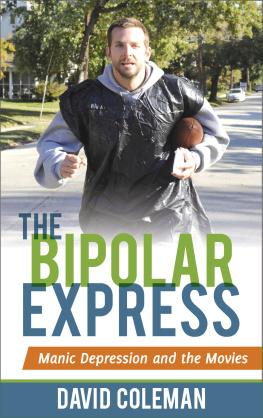
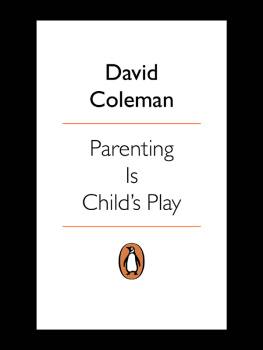
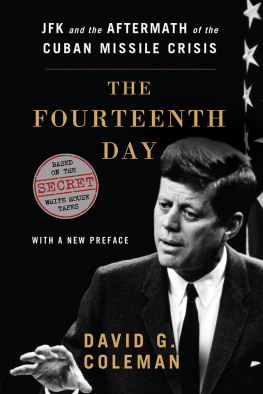
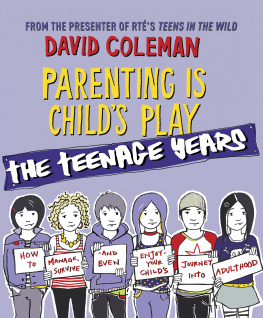

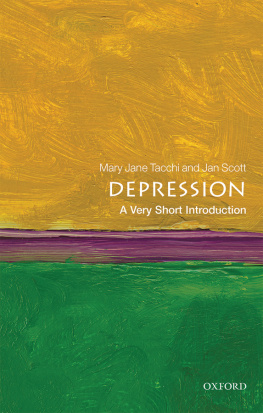
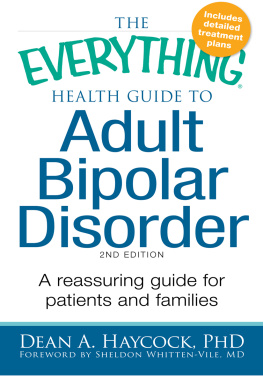
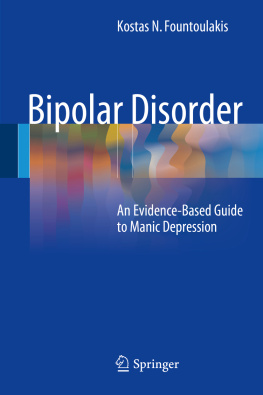
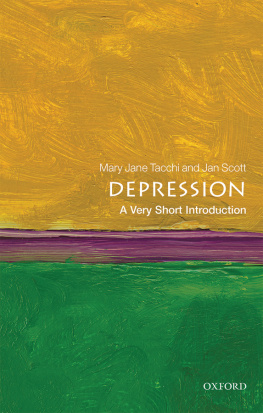

 TM The paper used in this publication meets the minimum requirements of American National Standard for Information Sciences Permanence of Paper for Printed Library Materials, ANSI/NISO Z39.48-1992.
TM The paper used in this publication meets the minimum requirements of American National Standard for Information Sciences Permanence of Paper for Printed Library Materials, ANSI/NISO Z39.48-1992.